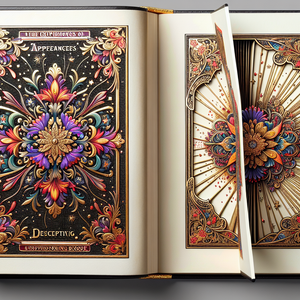The Future of Beauty Tech: Sephora's Role in the Digital Transformation

One of Sephora's most notable technological innovations is the implementation of AR through its mobile app and in-store experiences. The "Virtual Artist" feature allows customers to try on makeup virtually, using their smartphone cameras to see how different products look on their skin. This technology not only enhances the shopping experience by providing a risk-free way to experiment with colors and textures but also empowers customers to make informed decisions without the need for physical samples. For instance, during the COVID-19 pandemic, as consumers were hesitant to try on products in-store, Sephora's AR technology proved invaluable. The company reported a significant increase in user engagement with the Virtual Artist feature, demonstrating how AR can bridge the gap between online shopping and in-person experiences. This innovation has not only improved customer satisfaction but has also contributed to increased sales, with users spending more time engaging with the app.
Artificial Intelligence: Personalized Recommendations
Sephora’s commitment to personalization is further exemplified through its use of AI. The brand utilizes machine learning algorithms to analyze customer data, preferences, and behaviors. This information enables Sephora to provide tailored product recommendations, enhancing the shopping experience for users. The “Sephora Color IQ” system, for example, matches customers with the perfect foundation shade based on their unique skin tone. This level of personalization fosters customer loyalty and significantly increases sales, as customers are more likely to purchase products that resonate with their individual needs. A report from McKinsey & Company highlights that businesses excelling in personalization can outperform their competitors by up to 20%. Sephora's AI-driven approach allows it to not only meet customer expectations but also anticipate them, creating a more intuitive shopping experience.
Sephora's Digital Ecosystem: Integrating Online and Offline Experiences
Sephora has successfully created a seamless digital ecosystem that integrates both online and offline shopping experiences. The brand’s website and app feature enhanced functionalities, such as virtual consultations with beauty experts, which allow customers to receive personalized advice from the comfort of their homes. Moreover, the option to buy online and pick up in-store caters to consumers seeking convenience, combining the best aspects of both shopping worlds. The company’s investment in technology extends to its in-store experiences as well. In select locations, Sephora has introduced digital screens that provide customers with product information, reviews, and tutorials. This blend of digital and physical shopping experiences not only enhances customer engagement but also positions Sephora as a leader in retail innovation. By creating a more interactive shopping environment, Sephora encourages exploration and discovery, key elements of the beauty shopping experience.
Future Implications: Setting Industry Standards
As Sephora continues to innovate, its influence on the beauty industry is profound. Other brands are closely observing its successful implementation of technology, prompting them to adopt similar strategies. By setting high standards for digital experiences, Sephora enhances its brand reputation while driving the entire industry toward a tech-driven future. The potential for further advancements is vast. With ongoing developments in AI and AR, the future of beauty shopping may soon include even more immersive experiences, such as virtual beauty consultations in real-time or AI-driven skin analysis that suggests skincare routines tailored to individual needs. As these technologies evolve, Sephora's ability to adapt and lead will be crucial in shaping the future of beauty retail.
Sephora’s proactive approach to integrating technology into the beauty retail experience is not just a fleeting trend; it represents a significant shift in how consumers engage with beauty products. By harnessing the power of augmented reality and artificial intelligence, Sephora is redefining the shopping experience, making it more personalized, engaging, and convenient. As the beauty industry continues to evolve, Sephora’s role as a pioneer in digital transformation will undoubtedly shape the future of beauty retail, setting new standards for customer engagement that other brands will aspire to achieve. In this rapidly changing landscape, one thing is clear: the future of beauty is not just about products; it’s about the experiences that technology can create.
Augmented Reality (AR) Developer
Sephora, L'Oréal, Estée Lauder
Core Responsibilities
Design and implement AR applications for mobile platforms and in-store displays to enhance customer engagement.
Collaborate with UX/UI designers to create intuitive interfaces that allow users to interact with virtual beauty products.
Conduct user testing and gather feedback to refine AR experiences.
Required Skills
Proficiency in AR development frameworks such as ARKit or ARCore.
Strong programming skills in languages like Swift and JavaScript.
Experience with 3D modeling and animation software (e.g., Unity, Blender).
Data Scientist - Personalized Marketing
Sephora, Ulta Beauty, Amazon
Core Responsibilities
Analyze large datasets to identify customer behaviors and preferences, informing personalized product recommendations.
Develop machine learning models that predict customer needs and enhance marketing strategies.
Collaborate with marketing teams to implement data-driven campaigns that improve customer engagement.
Required Skills
Expertise in statistical analysis and machine learning techniques (e.g., clustering, regression).
Proficiency in programming languages such as Python or R, and experience with data visualization tools (e.g., Tableau).
Strong understanding of customer segmentation and digital marketing analytics.
E-commerce Product Manager
Sephora, Beautylish, Birchbox
Core Responsibilities
Oversee the development and optimization of Sephora’s e-commerce platform, ensuring seamless user experiences across devices.
Collaborate with cross-functional teams to launch new features and improve existing functionalities based on user feedback and analytics.
Monitor industry trends and competitor strategies to innovate and enhance the online shopping experience.
Required Skills
Strong knowledge of e-commerce platforms (e.g., Shopify, Magento) and user experience best practices.
Excellent project management skills with experience in Agile methodologies.
Familiarity with SEO principles and digital marketing strategies.
UX/UI Designer for Beauty Applications
Sephora, Fenty Beauty, Glossier
Core Responsibilities
Create user-centered designs for mobile apps and websites, focusing on enhancing the beauty shopping experience.
Conduct user research and usability testing to gather insights and iterate on design solutions.
Collaborate with developers to ensure designs are implemented accurately and meet technical requirements.
Required Skills
Proficiency in design tools such as Sketch, Adobe XD, or Figma.
Strong portfolio showcasing experience in designing intuitive and engaging user interfaces.
Understanding of interaction design principles and accessibility standards.
Digital Marketing Specialist - Beauty Tech
Sephora, MAC Cosmetics, L'Oréal
Core Responsibilities
Develop and execute digital marketing campaigns that promote Sephora’s innovative technology offerings, such as AR and AI features.
Utilize SEO, PPC, and social media strategies to drive traffic and engagement on digital platforms.
Analyze campaign performance metrics to optimize future marketing initiatives.
Required Skills
Strong knowledge of digital marketing tools and analytics platforms (e.g., Google Analytics, SEMrush).
Excellent written communication skills with a creative flair for crafting compelling marketing copy.
Experience with CRM tools and email marketing platforms (e.g., Mailchimp, HubSpot).


